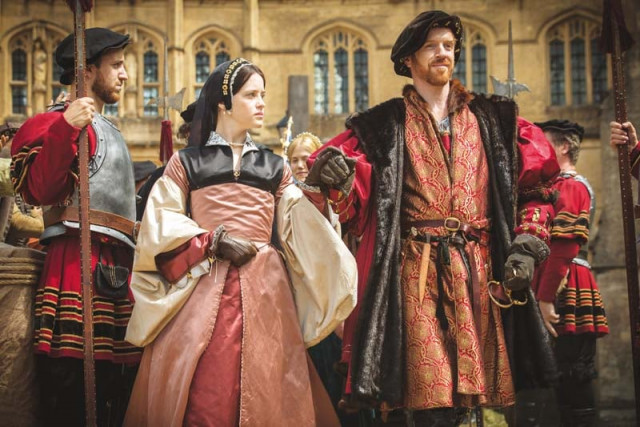TV review: Wolf Hall - Tudor time
BBC sinks its teeth into English history in a compelling adaptation of Hilary Mantel’s Wolf Hall

BBC sinks its teeth into English history in a compelling adaptation of Hilary Mantel’s Wolf Hall.
The miniseries opens in the year 1500. Henry VIII (Damian Lewis) has vowed to marry Anne Boleyn (Claire Foy), even though he already has a wife and the Roman Catholic Church, which England is a part of, is refusing to grant an annulment of the first marriage.
Without the church’s backing, Henry’s second marriage cannot take place, and he is not a man used to hearing ‘no’. On the other hand, England breaking away from the Roman Catholic Church would be more or less an act of war. In these tumultuous times, we encounter Thomas Cromwell (Mark Rylance), an aide of Cardinal Wolsey, the man who had promised to get the church’s consent on Henry’s behalf and who has failed to do so. As Wolsey falls out of favour, Cromwell creeps up the ranks of the major players of Tudor politics, eventually becoming the king’s most trusted adviser. But in order to rise to power and stay there, he will have to give the king what everyone in the country is against — marriage to Anne Boleyn.
What makes Wolf Hall so compelling is that it takes a very modern view of history — Cromwell is very much an anti-hero in the same league as Frank Underwood and Walter White, with a thirst for power and talent for underhanded manipulations. His pragmatism and shrewd insight into people’s motivations, coupled with his vacant, puppy-dog expression that causes everyone to underestimate him, makes it riveting to watch him subtly pull the strings of everyone around him. Cromwell is mostly as inscrutable to the audience as to the characters around him, and half the fun is in figuring out what his end-game is.
Anne Boleyn, as played by Foy, is a powerful player in her own right — someone who knows that her body and her ability to bear a son is her only currency in a twisted system, and isn’t afraid to use it. The evolution of Cromwell and Anne’s relationship, from enemies to begrudging allies and then back, is delicious to watch.
Wolf Hall wastes no time in exposition. With only six hours and lots of plot to cover, it hits the ground running. This might make for confusion and lots of pauses as you go to Wikipedia but soon enough, the show sucks you in. In the novel, Mantel writes, “The fate of peoples is made like this, two men in small rooms. Forget the coronations, the conclaves of cardinals, the pomp and processions. This is how the world changes: a counter pushed across a table, a pen stroke that alters the force of a phrase.” The show encapsulates this completely. Every seemingly innocent conversation in the show is loaded with meaning, every gesture and word is carefully chosen for strategic manoeuvrings, and even knowing how it all ends just lends an air of inevitability to the action, making for some great television.

Published in The Express Tribune, Sunday Magazine, August 23rd, 2015.



















COMMENTS
Comments are moderated and generally will be posted if they are on-topic and not abusive.
For more information, please see our Comments FAQ